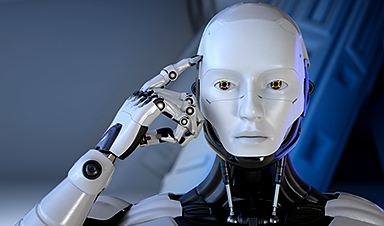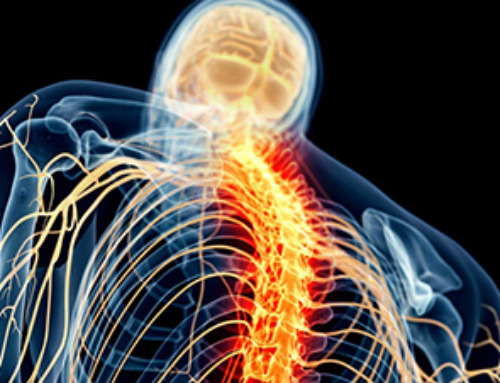Every piece of fiction carries a kernel of truth, and now is about the time to get a step ahead of sci-fi dystopias and determine what the risk in machine sentience can be for humans.
Although people have long pondered the future of intelligent machinery, such questions have become all the more pressing with the rise of artificial intelligence (AI) and machine learning. These machines resemble human interactions: they can help problem solve, create content, and even carry on conversations. For fans of science fiction and dystopian novels, a looming issue could be on the horizon: what if these machines develop a sense of consciousness?
Researchers published their results in the Journal of Social Computing.
While there is no quantifiable data presented in this discussion on artificial sentience (AS) in machines, there are many parallels drawn between human language development and the factors needed for machines to develop language in a meaningful way.
The Possibility of Conscious Machines
“Many of the people concerned with the possibility of machine sentience developing worry about the ethics of our use of these machines, or whether machines, being rational calculators, would attack humans to ensure their own survival,” said John Levi Martin, author and researcher. “We here are worried about them catching a form of self-estrangement by transitioning to a specifically linguistic form of sentience.”
The main characteristics making such a transition possible appear to be: unstructured deep learning, such as in neural networks (computer analysis of data and training examples to provide better feedback), interaction between both humans and other machines, and a wide range of actions to continue self-driven learning. An example of this would be self-driving cars. Many forms of AI check these boxes already, leading to the concern of what the next step in their “evolution” might be.
This discussion states that it’s not enough to be concerned with just the development of AS in machines, but raises the question of if we’re fully prepared for a type of consciousness to emerge in our machinery. Right now, with AI that can generate blog posts, diagnose an illness, create recipes, predict diseases, or tell stories perfectly tailored to its inputs, it’s not far off to imagine having what feels like a real connection with a machine that has learned of its state of being. However, researchers of this study warn, that is exactly the point at which we need to be wary of the outputs we receive.
The Dangers of Linguistic Sentience
“Becoming a linguistic being is more about orienting to the strategic control of information, and introduces a loss of wholeness and integrity…not something we want in devices we make responsible for our security,” said Martin. As we’ve already put AI in charge of so much of our information, essentially relying on it to learn much in the way a human brain does, it has become a dangerous game to play when entrusting it with so much vital information in an almost reckless way.
Mimicking human responses and strategically controlling information are two very separate things. A “linguistic being” can have the capacity to be duplicitous and calculated in their responses. An important element of this is, at what point do we find out we’re being played by the machine?
What’s to come is in the hands of computer scientists to develop strategies or protocols to test machines for linguistic sentience. The ethics behind using machines that have developed a linguistic form of sentience or sense of “self” are yet to be fully established, but one can imagine it would become a social hot topic. The relationship between a self-realized person and a sentient machine is sure to be complex, and the uncharted waters of this type of kinship would surely bring about many concepts regarding ethics, morality, and the continued use of this “self-aware” technology.
Reference: “Through a Scanner Darkly: Machine Sentience and the Language Virus” by Maurice Bokanga, Alessandra Lembo and John Levi Martin, December 2023, Journal of Social Computing.
DOI: 10.23919/JSC.2023.0024
News
Specially engineered antibody delivers RNA therapy to treatment-resistant tumors
Elias Quijano, PhD; Diana Martinez-Saucedo, PhD; Zaira Ianniello, PhD; and Natasha Pinto-Medici, PhD, there are 25 other contributors, most from Yale's Department of Therapeutic Radiology and from the departments of genetics, molecular biophysics and [...]
Vaccinated women face fewer cervical cancer risks
New data from Denmark shows the HPV vaccine’s powerful long-term impact, while also revealing why cervical cancer screening is still essential. A Danish study published in the journal Eurosurveillance reports that women who received the human [...]
3D-printed implant offers a potential new route to repair spinal cord injuries
A research team at RCSI University of Medicine and Health Sciences has developed a 3-D printed implant to deliver electrical stimulation to injured areas of the spinal cord, offering a potential new route to [...]
Nanocrystals Carrying Radioisotopes Offer New Hope for Cancer Treatment
The Science Scientists have developed tiny nanocrystal particles made up of isotopes of the elements lanthanum, vanadium, and oxygen for use in treating cancer. These crystals are smaller than many microbes and can carry isotopes of [...]
New Once-a-Week Shot Promises Life-Changing Relief for Parkinson’s Patients
A once-a-week shot from Australian scientists could spare people with Parkinson’s the grind of taking pills several times a day. The tiny, biodegradable gel sits under the skin and releases steady doses of two [...]
Weekly injectable drug offers hope for Parkinson’s patients
A new weekly injectable drug could transform the lives of more than eight million people living with Parkinson's disease, potentially replacing the need for multiple daily tablets. Scientists from the University of South Australia [...]
Most Plastic in the Ocean Is Invisible—And Deadly
Nanoplastics—particles smaller than a human hair—can pass through cell walls and enter the food web. New research suggest 27 million metric tons of nanoplastics are spread across just the top layer of the North [...]
Repurposed drugs could calm the immune system’s response to nanomedicine
An international study led by researchers at the University of Colorado Anschutz Medical Campus has identified a promising strategy to enhance the safety of nanomedicines, advanced therapies often used in cancer and vaccine treatments, [...]
Nano-Enhanced Hydrogel Strategies for Cartilage Repair
A recent article in Engineering describes the development of a protein-based nanocomposite hydrogel designed to deliver two therapeutic agents—dexamethasone (Dex) and kartogenin (KGN)—to support cartilage repair. The hydrogel is engineered to modulate immune responses and promote [...]
New Cancer Drug Blocks Tumors Without Debilitating Side Effects
A new drug targets RAS-PI3Kα pathways without harmful side effects. It was developed using high-performance computing and AI. A new cancer drug candidate, developed through a collaboration between Lawrence Livermore National Laboratory (LLNL), BridgeBio Oncology [...]
Scientists Are Pretty Close to Replicating the First Thing That Ever Lived
For 400 million years, a leading hypothesis claims, Earth was an “RNA World,” meaning that life must’ve first replicated from RNA before the arrival of proteins and DNA. Unfortunately, scientists have failed to find [...]
Why ‘Peniaphobia’ Is Exploding Among Young People (And Why We Should Be Concerned)
An insidious illness is taking hold among a growing proportion of young people. Little known to the general public, peniaphobia—the fear of becoming poor—is gaining ground among teens and young adults. Discover the causes [...]
Team finds flawed data in recent study relevant to coronavirus antiviral development
The COVID pandemic illustrated how urgently we need antiviral medications capable of treating coronavirus infections. To aid this effort, researchers quickly homed in on part of SARS-CoV-2's molecular structure known as the NiRAN domain—an [...]
Drug-Coated Neural Implants Reduce Immune Rejection
Summary: A new study shows that coating neural prosthetic implants with the anti-inflammatory drug dexamethasone helps reduce the body’s immune response and scar tissue formation. This strategy enhances the long-term performance and stability of electrodes [...]
Scientists discover cancer-fighting bacteria that ‘soak up’ forever chemicals in the body
A family of healthy bacteria may help 'soak up' toxic forever chemicals in the body, warding off their cancerous effects. Forever chemicals, also known as PFAS (per- and polyfluoroalkyl substances), are toxic chemicals that [...]
Johns Hopkins Researchers Uncover a New Way To Kill Cancer Cells
A new study reveals that blocking ribosomal RNA production rewires cancer cell behavior and could help treat genetically unstable tumors. Researchers at the Johns Hopkins Kimmel Cancer Center and the Department of Radiation Oncology and Molecular [...]





















